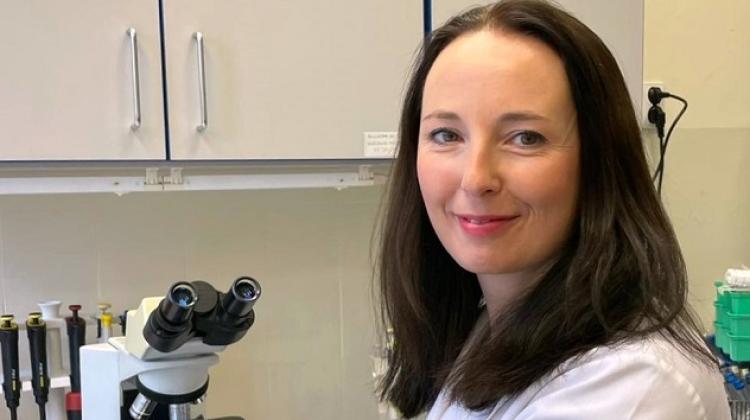Ground-breaking work to transform bionic legs
 Photo: Fotolia
Photo: Fotolia
An innovative, personalized orthopaedic implant for people who have had their leg amputated above the knee is being developed by researchers at the Łódź Bionanopark.
The implant, which is being co-financed by the EU at a cost of PLN 6 million, will improve the patient`s quality of life, walking ability and range of motion.
Project leader Prof. Bogdan Walkowiak at the Laboratory of Individual Medical Implants of the Bionanopark in Łódź said at a press conference: "There are similar implantation systems in the world, including Sweden and the UK, but no such procedure has been performed in Poland so far. Our project has been approved by the National Centre for Research and Development; we plan to implant five patients selected by the Orthopaedics Department of the WAM University Hospital.”
Dr. Marcin Elgalal from the Laboratory of Personalised Medical Implants explained that patients currently use traditional prostheses that include a socket attached to the limb stump. It has constant contact with the skin and soft tissues, which carry considerable loads during the patient`s movement causing irritation of the tissues, user`s discomfort, and sometimes health complications.
"We want to create an implant that will be inserted directly into the medullary cavity of the femoral stump; part of it will protrude beyond soft tissues. The prosthesis will be attached to this part. The implant connector system will be compatible with all available prostheses. The patient will carry the body weight not through the soft tissue of the stump, but through the implant connected to the bone itself. It will be a more physiological solution," Elgalal said.
As a result, the prosthesis user will have better walking ability, greater sitting comfort, and removing the socket pressing on the soft tissues will eliminate adjustment problems.
Additionally, the patient will not suffer painful problems with burns and ulcers of the stump, and a simple attachment system will allow them to put on or remove the prosthesis in just a few seconds.
"As part of the project, selected patients will have computed tomography and - as with other implants - on its basis we will adjust the implant to the shape and outline of femoral bone tissue. Each implant will be individually adjusted," added Elgalal.
Custom-made facial cranial implants have been made for patients who require such intervention for nine years in the Laboratory of Personalised Medical Implants. So far, specialists from Bionanopark have made about 200 such implants.
The personalized orthopaedic implant is being created by a consortium from Bionanopark, the Lodz University of Technology, Pabianicka Fabryka Instrumentów PAFANA SA and the Medical University of Lodz.
By the end of next year they plan to have a list of amputees selected for implantation, and the procedures themselves will most likely be carried out in 2021.
The project is co-financed by the European Regional Development Fund; its total value exceeds PLN 6 million, of which EU funding is over PLN 5 million.
PAP - Science in Poland, Agnieszka Grzelak-Michałowska
agm/ mhr/ kap/
tr. RL
Przed dodaniem komentarza prosimy o zapoznanie z Regulaminem forum serwisu Nauka w Polsce.














